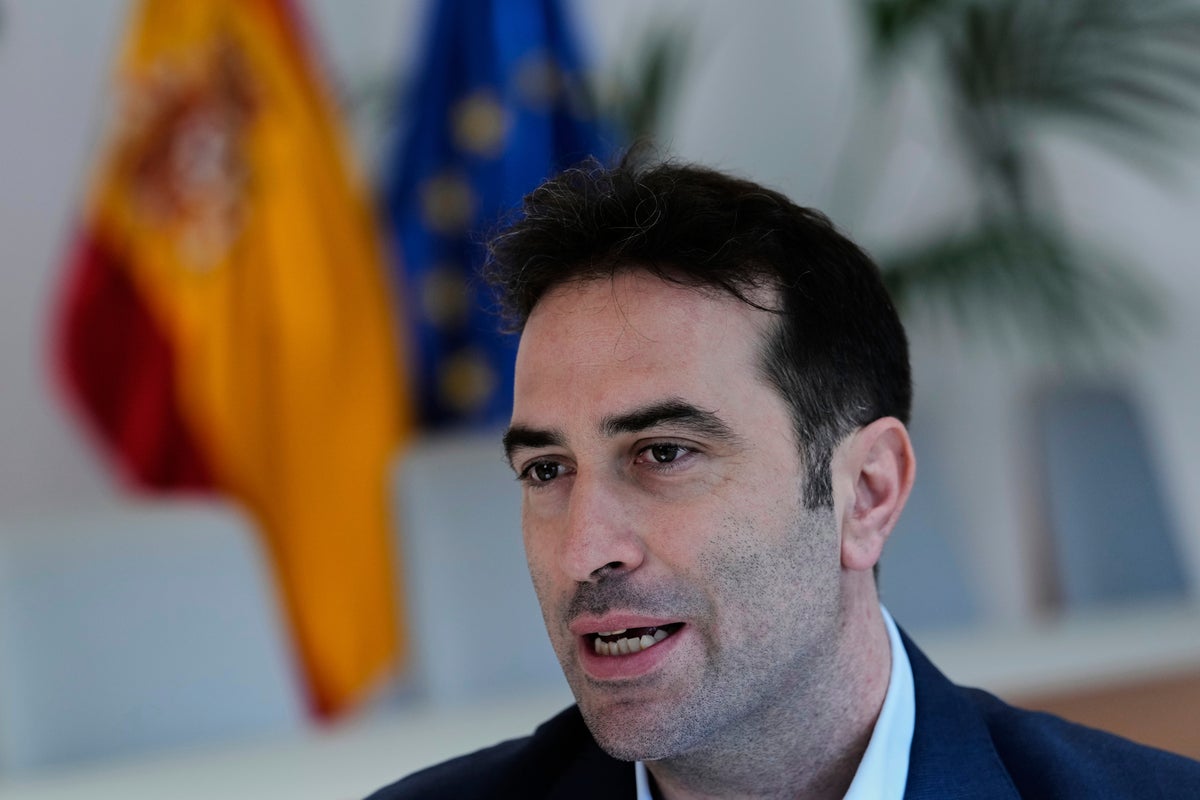Your support helps us to tell the story
From reproductive rights to climate change to Big Tech, The Independent is on the ground when the story is developing. Whether it’s investigating the financials of Elon Musk’s pro-Trump PAC or producing our latest documentary, ‘The A Word’, which shines a light on the American women fighting for reproductive rights, we know how important it is to parse out the facts from the messaging.
At such a critical moment in US history, we need reporters on the ground. Your donation allows us to keep sending journalists to speak to both sides of the story.
The Independent is trusted by Americans across the entire political spectrum. And unlike many other quality news outlets, we choose not to lock Americans out of our reporting and analysis with paywalls. We believe quality journalism should be available to everyone, paid for by those who can afford it.
Your support makes all the difference.Read more
Spain‘s economy minister says the millions of tourists who visit the country every year present a challenge for Spain’s residents that the government can no longer afford to ignore.
Last year, Spain received a record 94 million international visitors, making it one of the most visited countries in the world. It could receive as many as 100 million tourists this year, according to some projections.
“It’s important to understand that these record numbers in terms of tourism also pose challenges,” Economy Minister Carlos Cuerpo said in an interview Tuesday with The Associated Press. “And we need to deal with those challenges also for our own population.”
Tourism is a key sector for the Southern European nation’s economy, which grew faster than any major advanced economy last year at 3.2%, and is projected to grow at 2.4% this year, according to the Bank of Spain, well ahead of the expected eurozone average of 0.9%.
But a stubborn housing crisis in which home and rental costs have skyrocketed in cities such as Madrid, Barcelona and elsewhere has led to growing frustration about one aspect tied to tourism in particular: the proliferation of short-term rental apartments in city centers.
The country has seen several large protests that have drawn tens of thousands of people to demand more government action on housing. Signs at demonstrations with slogans such as “Get Airbnb out of our neighborhoods” point to the growing anger.
In response, the government recently announced it was cracking down on Airbnb listings that it said were operating in the country illegally, a decision that the company is appealing.
“We are a 49 million-inhabitants country,” Cuerpo said. The record numbers of tourists illustrate the “attractiveness of our country, but also of the challenge that we have in terms of dealing and providing for a good experience for tourists, but at the same time avoiding overcharging (for) our own services and our own housing,” he said.
The Bank of Spain recently said the country has a deficit of 450,000 homes. Building more public housing is critical to solve the problem, Cuerpo said. Spain has a lower stock of public housing than many other major European Union countries.
“This is the key challenge for this term,” the minister said of the country’s housing woes.
On the possibility of more U.S. tariffs on EU goods, the top economic policymaker for the eurozone’s fourth-largest economy said he believed the EU still wanted to reinforce economic ties with the U.S.
“From the EU side, we are constructive but we are not naive,” Cuerpo said, adding that the bloc would pursue “other routes protecting our firms and industries” if no agreement with the Trump administration can be reached.
A 90-day pause on tariffs announced by the EU and the U.S. is slated to end on July 14. About halfway through that grace period, U.S. President Donald Trump announced 50% tariffs on steel imports. The U.S. has also enacted a 25% tariff on vehicles and 10% so-called reciprocal tariffs on most other goods.
On how Spain’s current housing woes got here, the minister said a steep drop in construction in Spain following the 2008 financial crisis played a role. So did population growth due to immigration, Cuerpo said, and pressures from an increase in the number of tourists.
While building more housing is key, the minister advocated for an all-of-the-above approach, including regulating Spain’s housing market and short-term rental platforms.
“For us, there’s no silver bullet,” he said.
